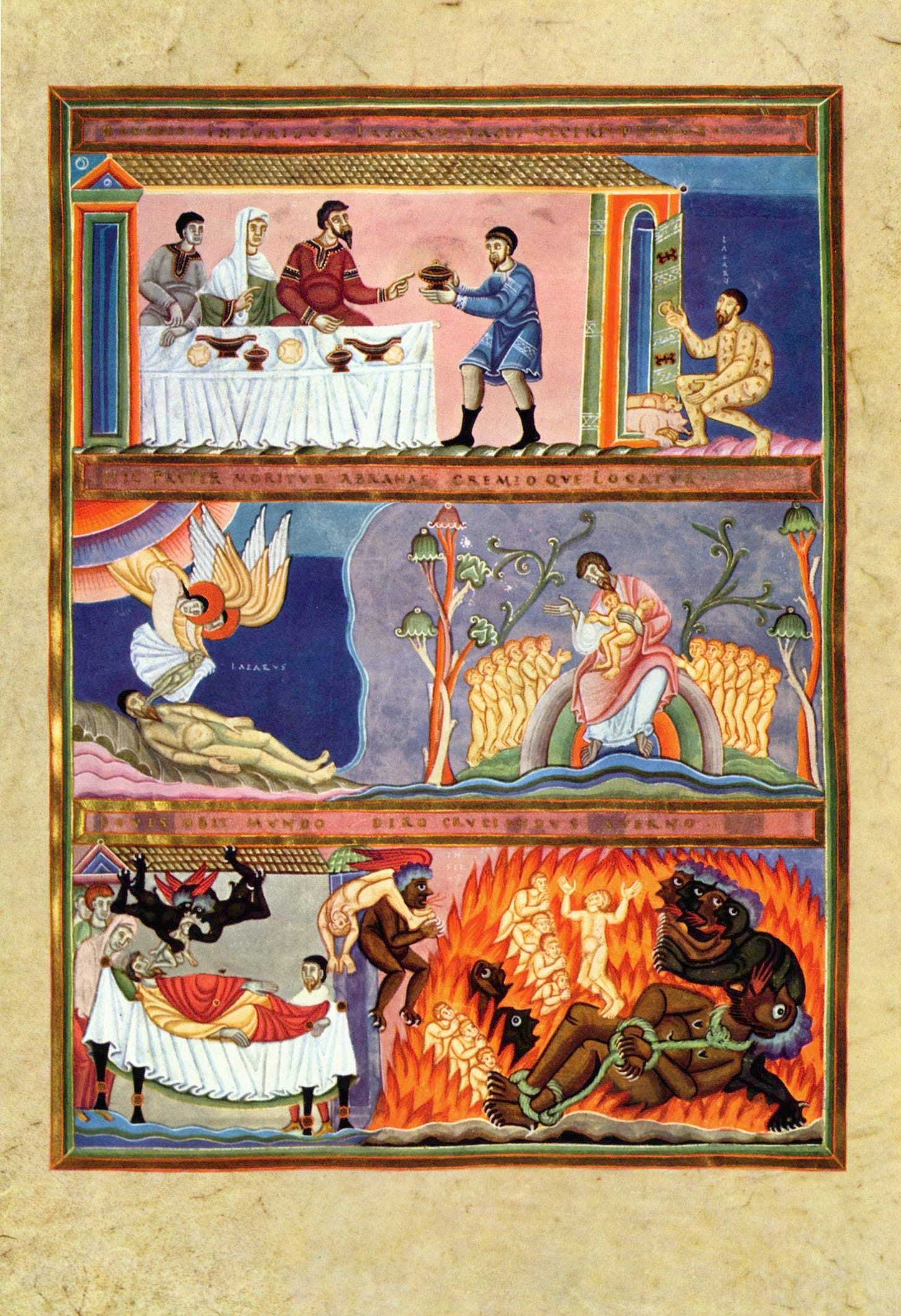More tortuous than all else is the human heart
Thursday of the Second Week of Lent
The First Reading today contains a most disconcerting verse! “More tortuous than all else is the human heart, beyond remedy; who can understand it?” Tortuous does not mean tortured; it means twisted, circuitous. A better translation, used by the RSV, is, “The heart is deceitful above all things, and desperately corrupt; who can understand it?”
To trust in man is to trust in the heart that “turns away from the LORD,” when it so bids. As St. Augustine points out, the heart cannot resist a compelling cupidity; and there are many cupidities that can compel the heart.
The contrast is with “the man who trusts in the LORD,” in his will, his revelation. He “delights in the law of the LORD and meditates on his law day and night.”
What then of the heart? Interminably untrustworthy? I think that is to take Jeremiah’s meaning too far. On the contrary. Scripture does more than accuse the corrupted heart, it points it back to its original orientation, to renewal:
Blessed are the pure in heart, for they shall see God.
Where your treasure is, there your heart will be also.
I have stored up your word in my heart, that I might not sin against you.
Delight yourself in the Lord, and he will give you the desires of your heart.
Trust in the Lord with all your heart.
Create in me a clean heart, O God, and renew a right spirit within me.
Keep your heart with all vigilance, for from it flow the springs of life.
I will remove the heart of stone from your flesh and give you a heart of flesh.
You will seek me and find me, when you seek me with all your heart.
So teach us to number our days that we may get a heart of wisdom.
I will give thanks to the Lord with my whole heart.
Let not steadfast love and faithfulness forsake you; bind them around your neck; write them on the tablet of your heart.
Each one must give as he has decided in his heart, not reluctantly or under compulsion, for God loves a cheerful giver.
I will praise you with an upright heart, when I learn your holy precepts.
May he grant you your heart's desire and fulfill all your plans!
The good person out of the good treasure of his heart produces good, and the evil person out of his evil treasure produces evil, for out of the abundance of the heart his mouth speaks.
And the peace of God, which surpasses all understanding, will guard your hearts and your minds in Christ Jesus.
As should be clear from the above verses, the heart is in need of healing, of transformation. Native feelings alone, in this broken world and in this nature affected by sin, are insufficient. The heart must be formed, trained, taught. But this is not an exercise in violence, forcing the heart to take what it does not really want. It is an exercise in discovery, in finding what the heart was really made for.
The Gospel Acclamation today says: “Blessed are they who have kept the word with a generous heart.” The Word of God is the principle of renewal for the heart. God has made the human heart, and he alone can reveal its true purpose. Therefore, do not first ask, what do I want, but instead, what has God revealed. For God knows the heart, better than we: as the Lord says through the prophet Jeremiah, “I alone probe the mind and test the heart.” We are not capable of doing so.
In the arresting parable given by Jesus in the Gospel, we have the sad story of a man who sought “what was good during his lifetime,” fine and sumptuous delights, things that easily attract the heart in this world. Such things will not endure, but pass away like grass. From the perspective of eternity, they give no comfort but only torment.
How to employ that education of the heart we so desperately need? Seek humility, the willingness to approach the Word with an open heart, a heart ready to be taught and formed. In moments of great passion, it is very difficult not to follow the deceitful, tortuous ways of the heart. So we must set our mind on the Word, the expression of God’s Heart, vigorously attentive to its intentions. Otherwise, not even the Resurrection of Christ will be enough to persuade a heart hardened in its desire, as the Gospel states so sternly.
Reread the list of Scripture passages above, on the right formation of the human heart. What do you notice?
Consider the genealogy of your own heart, the history of its desires. What has brought disappointment and pain? Where have you found peace? Is that peace secure? What has the Lord been teaching you in your life in the evolution of your desires? Have you been attentive? Or have there been times that not even the Resurrection could have swayed your intent?
Jesus told St. Margaret Mary, when he revealed to her the mystery of his heart: “Behold this Heart which has so loved men that it has spared nothing, even to exhausting and consuming Itself, in order to testify Its love; and in return, I receive from the greater part only ingratitude, by their irreverence and sacrilege, and by the coldness and contempt they have for Me in this Sacrament of Love [i.e. the Eucharist].” Perhaps the deepest wounds our hearts can feel are the injuries of spurned love. If our hearts are made to give themselves in love, how does this revelation of the Heart of Jesus longing for our love tell us about the original call of our hearts, and about finding the way back to that original purpose and the peace that the love of the Heart of Christ alone can give? Here we find the beautiful truth of reparation, the desire to console his wounded Heart with our renewed love.



